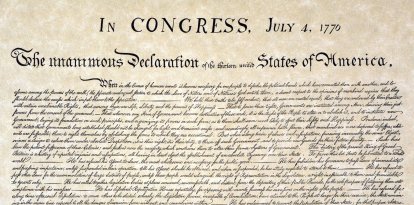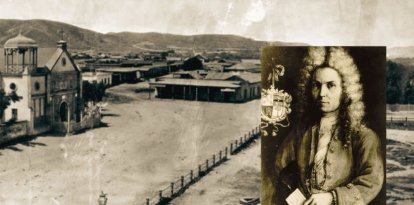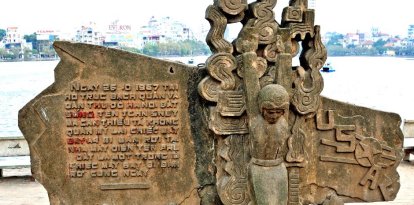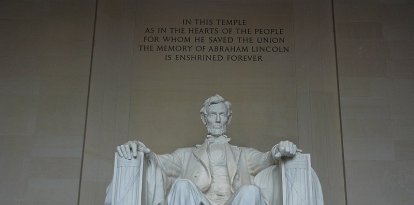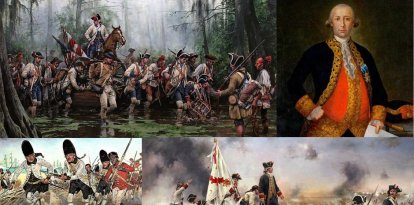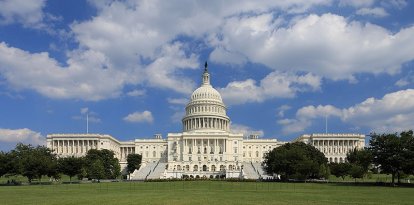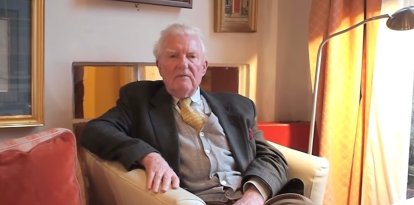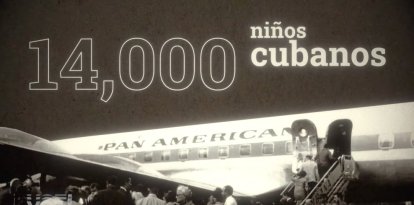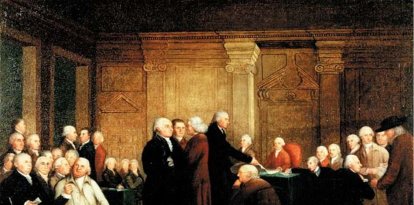U.S. History Stories: Pocahontas and the Mayflower Pilgrims
The Indian princess was fascinated by the English, learned the language of her kidnappers and adopted their clothing.
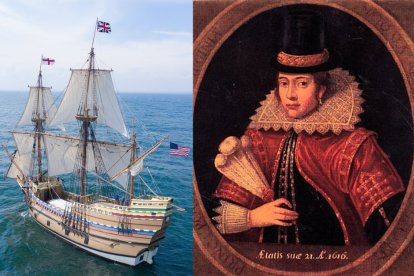
The Mayflower & Pocahontas. (Flickr / Voz Media).
The stable presence of settlers from the United Kingdom of Great Britain in America dates back to the end of the sixteenth century, to 1587, when Walter Raleigh sent three ships and a total of 117 people to the other side of the Atlantic, specifically to what today is the island Roanoke on the coast of North Carolina. Raleigh gave the name Virginia to these new lands in honor of the Virgin Queen, Elizabeth I who had just knighted him. The first settlers were not very successful: the expedition leader, John WhiteHe returned to England to get the supplies that Raleigh had promised him (and that had not been able to sail due to an attack by the Spanish Invincible Armada). On his return to America, he found none of the settlers alive.
The colonizing baton was taken over by two trading companies: the London Virginia Company was granted permission to colonize the lands of southern Virginia, while the Plymouth Company was assigned the northern part of the same territory. New settlers began to leave for America, although always in small numbers and under a contract that made them de facto slaves for seven years. Jamestown is considered to be the first stable colony.Life continued to be hard and miserable, surrounded by innumerable dangers, not the least of which was malaria. In fact, within a few months, half of the settlers of this second wave had died or returned to Europe.
But the worst was yet to come: 1609 is remembered as the year of the famine. Desperate, the settlers went so far as to commit acts of cannibalism as they watched the small community being decimated and risked ending up like the inhabitants of Roanoke. It was the audacity of Captain John Smith and the generosity of the surrounding Indians that managed to change a fate that seemed already decided. Smith managed to be adopted by the local Indian tribes and obtained from them enough corn and yams to keep his fellow settlers alive. It was also he who instituted martial law in the small colony, ordering that no food be given to those who did not work.
From this relationship with the local Indians, the famous story of Pocahontas, daughter of the Chief of the Powhatans, was born. It was Pocahontas who saved John Smith from certain death. when he was captured by his father; but it would not be until a few years later that he would come into more direct contact with the English, and for no romantic reasons. In 1613 Captain Samuel Argall kidnapped the girl to pressure her father in the negotiations that were taking place between Indians and settlers. The Indian princess was fascinated by the English and, with a textbook Stockholm Syndrome, learned the language of her kidnappers and adopted their clothing. A year later, with her father's approval, she married John Rolfe, a tobacco farmer who took her to England, where she made a very positive impact on the court. Unfortunately, the real Pocahontas fell ill and died in England in 1617, but thanks to her, relations between Indians and colonists were to be friendly for a full decade.
Although they were neither the first to arrive nor the most numerous, there is no denying that the Pilgrims and their Mayflower Compact left an indelible mark on the American imagination.
The Puritans of the 'Mayflower'
Despite the story of Pocahontas, popularized and duly sweetened by the Disney movie, the truth is that the first image that is usually associated with the colonization of North America is somewhat later than these first and precarious colonies. We refer to the celebrated Puritans who embarked on the no less celebrated Mayflowerthe pilgrims (Pilgrims), a group of religious dissidents who set out in 1620 for new lands in which to practice their particular version of Christianity without interference from the power of the Crown (and, incidentally, a relief for the king himself, who got rid of those pesky heterodox).
After 65 days of travel, the Mayflower arrived in what is now Provincetown, Massachusetts, in late November 1620.. But the importance of the pilgrims is because it was they who produced the first political document in English America, the Mayflower Compact, which still resonates in American ears and contains some ideas that are indispensable to understanding the American character.
There we can read how the signatories had undertaken, "for the glory of God and the advancement of the Christian faith, and for the honor of our king and country, a journey to establish the first colony in the northern parts of Virginia"; and that, "solemnly and mutually, in the presence of God and of each other," they subscribed a "covenant" and were united in "a civil body politic (...) with just and equal laws"..
These pilgrims, imbued with a Christian faith in which the reading of the Bible, and especially the Old Testament, was central, saw themselves as the new chosen people. the new chosen people.
If Yahweh had led the Jews out of Egypt to a promised land after passing the test of the desert, now it was they who were led out of corrupt Britain to a new land after passing the test of the hard journey across the Atlantic. We already see here a clear awareness of having a unique and special destiny (which later became popularized under the expression "...").Manifest Destiny.), with an impact on all mankind; a consciousness that, with all the changes and mutations one may wish, has never abandoned the way Americans have conceived themselves.
Along with this feature, a country appears already outlined where, despite all the formulas of respect for the monarch, the political body is formed by the same people who formulate this alliance directly with God, and where there is no room for inequalities and aristocracies. there is no room for inequalities and aristocracies.. Once again, the biblical echoes are evident, starting with the very terminology of the covenant and the idea of a people where no one is superior to another.
Although they were neither the first to arrive nor the most numerous, there is no denying that the Pilgrims and their Mayflower Compact left an indelible mark on the American imagination. in the American imagination.
Note: This text is excerpted from La historia de los Estados Unidos como jamás la habían te contado ( J. Soley, Stella Maris, Barcelona, Spain, 2015).
RECOMMENDATION
